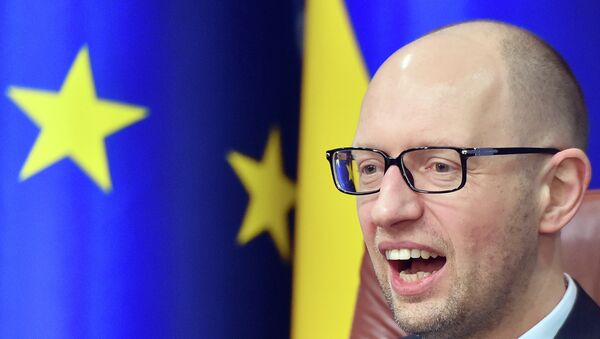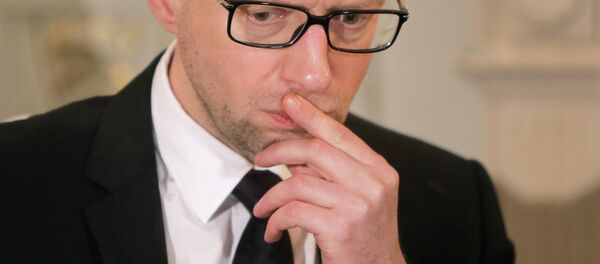The Ukrainian government reached a deal with its international creditors to slash its $18 billion debt by 20 percent, but not with Russia.
In a civilized world it is always the creditor who forgives the debt owed him by the borrower, not the other way round, the newspaper added.
In the case with Russia, Yatsenyuk not only urged Moscow to accept his reduced debt repayment offer, but also advised the Kremlin to look for the rest in the pockets of the “bandits who embezzled the money of the Ukrainian state and found political asylum in Russia.”
“Yatsenyuk can rest assured that the Kiev stock exchange will not crash and the hryvniya will not fall any further simply because it has nowhere to fall,” Obserwator Polityczny noted, adding that Russia will hardly ever get its money back now.
However, relations between states hinge on continuity and trust, not on someone cheating the other.
The West built its wealth on the dependability of the way it did business: money loaned in Rotterdam worked in Venice and was subsequently reinvested in London.
Trade transactions done in good faith and laws safeguarding a creditor’s rights have always been the backbone of economic relations in Europe.
“It’s a pity that the Ukrainian oligarchs are giving Ukraine such a bad name in the world. Who will want to open a bank account in a country whose Prime Minister bullies the creditor?” Obserwator Polityczny wondered.



